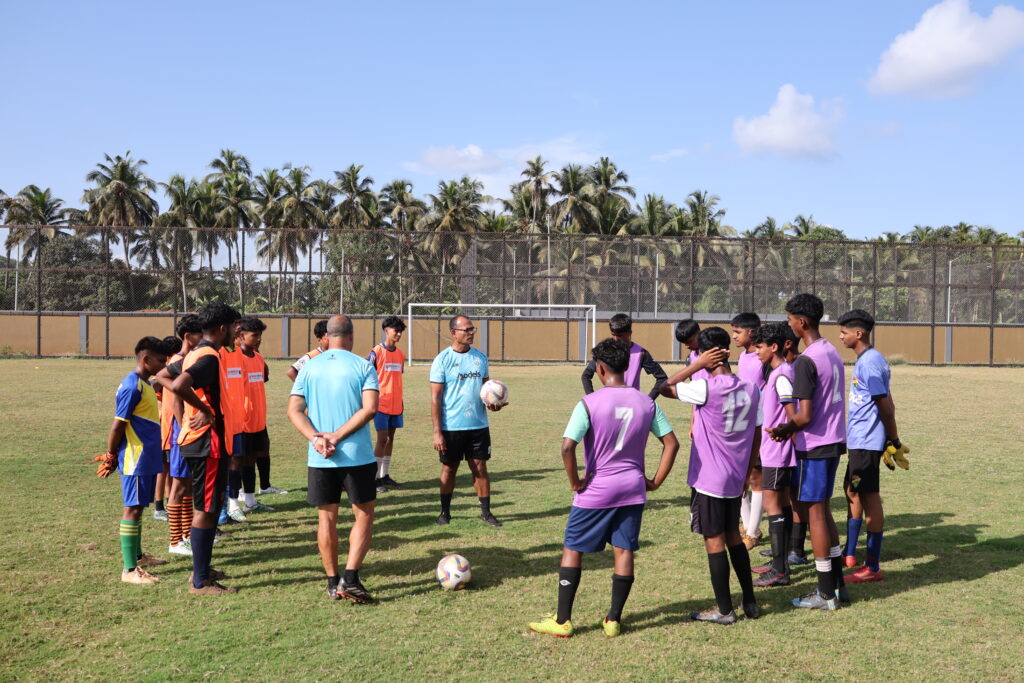In the modern era of sport, football has transcended its identity as merely a game. With a global audience in the billions and a cultural influence that stretches across borders, languages, and communities, professional clubs and leagues are uniquely positioned to make a difference far beyond the pitch. For Savio Medeira, Technical Director of Sporting Clube de Goa and a lifelong advocate for the game’s deeper purpose, that difference begins with investment—not just in infrastructure or talent, but in people and communities.
Professional football clubs, he says, hold not only the resources but the responsibility to give back to the societies that support them. One of the most powerful ways they can do this is through youth development programs that nurture more than just athletic ability.
“A youth program must be more than a talent factory,” Medeira says. “It should shape character, promote education, and equip young people for life—not just for football.”
These initiatives, when structured thoughtfully, offer pathways for young individuals to escape cycles of poverty, access quality education, and build self-worth. Clubs that embed education, health awareness, and leadership training into their academies become institutions of empowerment—not just entertainment.
But social investment doesn’t stop at youth academies. Community engagement—whether through local development, environmental initiatives, or public health campaigns—can help clubs foster long-lasting bonds with their supporters. This isn’t just about branding or visibility; it’s about building trust and loyalty that lasts through generations.
“When clubs invest in local development, education, or public health, they build goodwill, loyalty, and trust with their fans. Fans are more likely to support clubs that contribute positively to society, which in turn strengthens the club’s long-term relevance, reputation, and resilience—both on and off the field,” Medeira notes. “It strengthens the emotional connection between a club and its people,”he further continues.
This connection is especially critical in today’s values-driven culture. Fans, sponsors, and even players increasingly expect clubs to demonstrate corporate social responsibility. A club’s success is now measured not only by trophies, but by its impact off the pitch.
When asked about the football-based social projects that inspire him, Savio Medeira points to several impactful initiatives from around the world. He highlights “Football Beyond Borders” in the United Kingdom, “Common Goal” from Berlin, Germany, “Football for Peace” in the Middle East and North Africa (MENA) region, and “Kickstart” in South Africa.
However, it’s the vision and structure of one project in particular that stands out to him.
“One football-based social project from another part of the world that has inspired me would be, The Common Goal. Launched in Germany, Common Goal is a pledge-based charitable movement where footballers and coaches commit at least 1% of their salaries to a collective fund that supports football charities around the world. Backed by figures like Juan Mata and Jürgen Klopp, the initiative has gained momentum as a collective model for change,” he says
He adds that the key lesson from Common Goal is scalability: the initiative proves that when individuals pool their resources and align around shared values, the resulting impact can be transformative. Clubs, he believes, can replicate this ethos by forming partnerships with schools, NGOs, and local governments to support education, sustainability, and inclusion.
Ultimately, for Medeira, the game’s true greatness lies not in its revenue or reach, but in its ability to unite and uplift.
“Football gave many of us a future,” he reflects. “Now it’s our turn to make sure it gives something back to the world.”
As more clubs and leagues awaken to their potential as social leaders, the hope is that they will not only compete for silverware—but for the chance to build stronger, more equitable communities through the global language of football.


